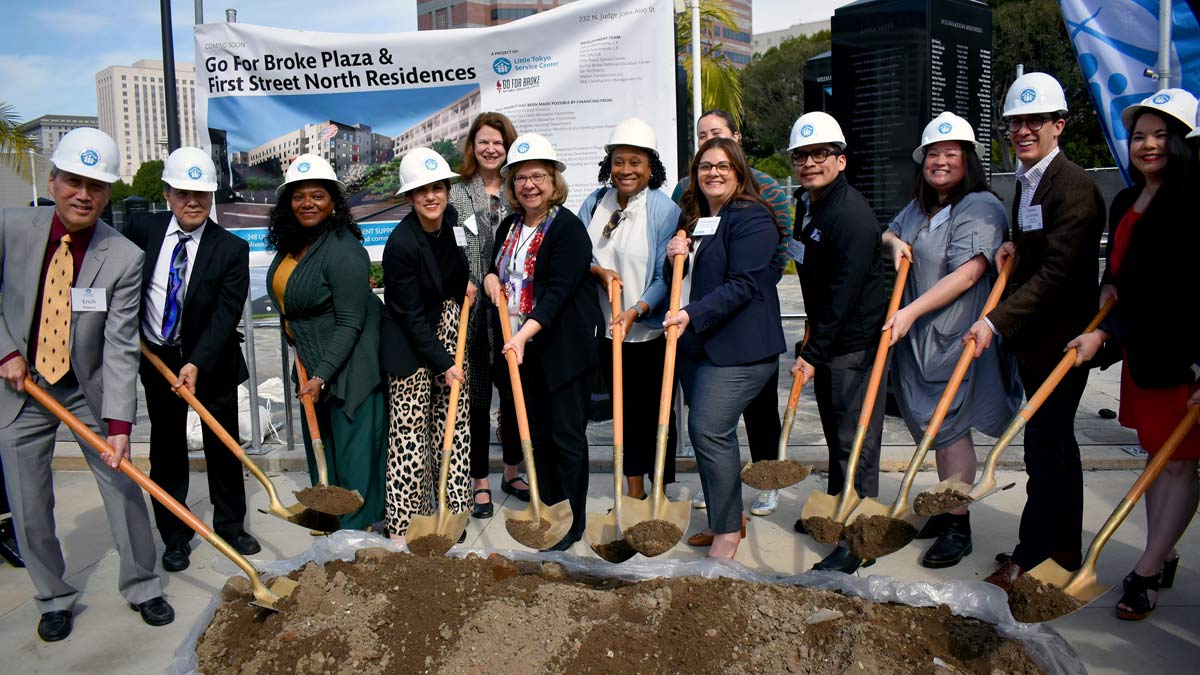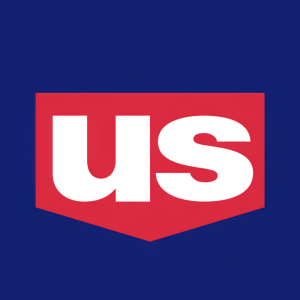Breaking Ground in LA’s Little Tokyo
Complex and creative financing leads to the development of 248 units of affordable housing and commercial space for minority-owned businesses
NORTHAMPTON, MA / ACCESSWIRE / February 29, 2024 / U.S. Bank

Little Tokyo Service Center, Go for Broke National Education Center, U.S. Bank representatives plus other partners and funders break ground in Little Tokyo.
Originally published on U.S. Bank company blog
A new mixed-use, affordable housing development is underway in Los Angeles' Little Tokyo neighborhood. Go For Broke Plaza and First Street North Residences will provide 248 units of affordable housing plus approximately 40,000 square feet of commercial space that will house the Go for Broke National Education Center and local minority-owned businesses.
"This project is among the largest
U.S. Bancorp Impact Finance is the equity investor in the New Markets Tax Credit (NMTC) transaction and the two Low-Income Housing Tax Credit (LIHTC) deals related to the project, and is providing the construction debt for the LIHTC transaction. For this development, over
A longtime partner of Little Tokyo Service Center since 2009, U.S. Bank has provided
"It was a privilege to lean into this complex financial deal to help drive change," said Impact Finance Business Development Officer Drew Hammond. "My hope is that the project will not only preserve affordability for Little Tokyo residents and legacy businesses, but also stand as a symbol of reclamation and celebration of Little Tokyo's history."
Little Tokyo is in downtown Los Angeles and is home to one of the largest Japanese-American populations in North America. Portions of the neighborhood were declared a National Historic Landmark District in 1995. The Go For Broke Plaza and First Street North Residences project site has been designed to wrap around and prominently display the Go For Broke Monument that commemorates Japanese Americans who served in the United States Army during World War II. Eighty of the 248 units for residents will be designed for people with special needs, including units for veterans and people with AIDS. Some of the small businesses will include retail shops and restaurants that have been in the area for generations.
"This project is among the largest
100% affordable housing developments to be built in the City of Los Angeles."- Debbie Chen, Little Tokyo Service Center director of real estate
"This project is incredibly meaningful to the Little Tokyo community and provides much needed affordable housing," said Impact Finance Senior Project Manager Suzanne Furay. "Not only has it been rewarding to work closely with Little Tokyo Service Center and all of the project collaborators, but within U.S. Bank, it's a proud moment because multiple teams came together to meet the needs of our clients and the community."
Construction is already underway and the development is expected to be completed in 2026.
"U.S. Bank provided a scale of investment and wholehearted commitment that was critical to ensuring First Street North's success as one cohesive master planned development," added Chen. "U.S. Bank's appreciation for the entirety of the community vision and willingness to finance all the components of this project is worth celebrating. The efforts are an exemplar for how financial institutions can make a transformative difference in a place like Los Angeles."
U.S. Bank's total commitment to date for the broader Greater Los Angeles Area is
View additional multimedia and more ESG storytelling from U.S. Bank on 3blmedia.com.
Contact Info:
Spokesperson: U.S. Bank
Website: https://www.3blmedia.com/profiles/us-bank
Email: info@3blmedia.com
SOURCE: U.S. Bank
View the original press release on accesswire.com







